“Present company excepted, I imagine . . .”
“I’m not sure about that, Lucas, no offense,” Rae said. “We were sitting in that shitty bar talking to those dopers and Virgil was so naturally comfortable with them, I had to be there to believe it. Those guys are now his best friends in Hollywood, Florida. He’s apparently got this great girlfriend and everything, but he’s hot. And he makes me laugh. He’s got a hard nose when he needs it . . . He shot down an airplane . Have you ever shot down an airplane?”
Weaver was bummed that his face didn’t feature in the FBI’s video celebrations. A couple of weeks after he returned to his open-style work space in Washington’s J. Edgar Hoover Building, he was staring at a screen full of memos from the U.S. Attorney’s Office in Miami when Louis Mallard walked through. Mallard saw him and called out, “Hey, Dale,” and swerved into Weaver’s space, borrowed an unused chair from an adjacent desk, and sat and chatted about the case.
During the entire conversation it was all “Dale” and “Louis” under the eyes of twenty or thirty agents and clerical personnel. When Mallard left, he slapped Weaver on the back and said, “Terrific job, buddy. Makes me proud.”
When Weaver told him about it, Lucas said, “That’s Louis for you. He didn’t walk through there by accident. He was looking for you. Another ally, you know, and jacking up the morale around the office, which I hear isn’t so good. But he’s not a phony: you’re a real friend of his now.”
“Yeah, I . . . Jeez, I’m getting a different kind of treatment around here,” Weaver said. “When we broke the case, it was ‘Great job, what we expected from you.’ That was nice, but backslapped by Louis Mallard? My boss is almost afraid to talk to me. You can’t know how good that feels.”
Virgil got home to Mankato, Minnesota with the scuba gear and cowboy boots, in time for a major dump of snow. He, Frankie, his mother, the twins, Frankie’s ten-year-old son, Sam, and Honus the dog were more or less home-bound for two days, which was not a hardship. Honus the dog was all over him, as was Sam, who insisted that the three of them play Nerf football in the snow. Honus won, with three interceptions and runbacks estimated at between two and three hundred yards each. During the relatively short time Virgil was gone, the twins had calmed down somewhat, and didn’t bawl for more than four to six hours a day.
After an extended first night in bed, Frankie said, a soft and lazy sloe-eyed look on her face, “I gotta meet this Rae. She really got you wound up.”
“Sweetheart, you do all the winding I’ll ever need,” Virgil said.
He got away with it. The third day he was back, he sat at his computer, peered at the empty screen for a bit, called up a blank page on Microsoft Word, and typed, “Chapter One.”
Lucas was in and out of St. Paul for two weeks, tying up loose ends in South Florida and New York. When he got off the plane for the last time—or the last time before he’d be called to rehearse for the trials—he told Weather, “I need to spend time with you and the kids. When spring vacation comes up, let’s write a note to the school and get an extra week off. Paris and Rome, like that. Madrid. Make one great trip out of it.”
“Okay with me,” Weather said. She’d done three surgeries that day, and had been busy all winter. “I could use the break. If we can do it, I’m up for it.”
“Why couldn’t we do it?” Lucas asked. “Be good for the kids’ education.”
“I meant, if we’re allowed to,” Weather said. “All the docs are talking about this Covid virus. I guess it’s bad—it’s a killer. It’s apparently as infectious as the flu.”
“So we get the shots . . .”
“There aren’t any shots to get,” she said. “I talked to an epidemiologist at the U and she says it could be as bad as the 1919 pandemic. That’s hard to believe, but she’s scared. Really scared, and she’s not the scary type. She says we might have to lock down the country, ban travel.”
“I guess we’ll see,” Lucas said. “Hell, with all the modern tech you got in the hospitals now, how bad could it get?”
Jaquell the diver fled to the Bahamas’ Out Islands. With her parents and siblings and girlfriend, she spent her days fishing, diving, selling lobster to snowbirds who were too lazy to dive for their own.
She was calling herself Darshan, now, and told friends she’d decided to go by her middle name.
Out there on the islands, nobody was too concerned about what was happening in the States and Jaquell/Darshan never heard about the convictions of the Coast Guard killers. So she stayed out there, in the sun, occasionally glancing over her shoulder.
You can look for Darshan down the Exumas—an attractive, athletic woman with a tentative smile, in a size-small wet suit.
Steel drums, you know, the chicken dance. Pretty women around a fire on the beach. Like that.
AUTHOR’S NOTE
My brother-in-law Dan called me up and told me that in Golden Prey , I’d referred to a 40mm pistol. Should have been .40 caliber. Calibers are hundredths of an inch, millimeters are . . . millimeters. A 40mm pistol would shoot a bullet about an inch and a half across. There is a 40mm round—it’s fired from a grenade launcher, not the kind of weapon that Lucas Davenport would have tucked under his sport coat.
How do these mistakes happen? It’s not usually ignorance. They arise out of all kinds of things . . . haste, changes in story, weariness, boredom, juggling too many nouns at once. In another Prey novel, I had a man click off the safety on his Glock 9mm pistol, stolen from a Minneapolis detective, before he entered a house. The 9mm was fine, except Glocks don’t have safeties.
I’d originally written that the man had been carrying a Beretta, which do have safeties. Then, I made the mistake of talking to a Minneapolis detective who told me there’d been a change of policy, and they were no longer allowed to have personal carry pistols. They were required to use issue pistols, which were all Glocks. So, trying to be accurate, I changed “Beretta” to “Glock”—this was after the novel was essentially finished—and forgot that several lines above that, he’d clicked off the safety . . .
In Winter Prey , on the first page, I have a snowmobiling villain following a compass course of 375 degrees through a blizzard. That’s tough, since compasses only have 360 degrees. It was supposed to be 275 degrees, or west, but instead, he’s going northeast. I don’t know how that mistake occurred, but it should have been caught by somebody, at some point. I suspect it was a pure typo.
The thing is, I know about guns and have been shooting since I was in elementary school. I know the difference between millimeters and calibers, I know Glocks don’t have safeties, I know how many degrees there are on a compass.
Holding a hundred thousand words in your head, through numerous edits and rewrites, is a complicated business, and by the time you get to the end, you can barely stand to read through them again. When you’re dealing with numbers, especially, they can jump up and bite you in the ass.
Now, to Ocean Prey . I’m a recreational diver, but the diving portrayed in this book isn’t recreational, it’s technical. Scuba diving is overrun with numbers, and necessarily so. It starts right with the capacity (maybe a hundred cubic feet of air) and pressures (maybe 3,000 pounds per square inch) of your scuba tanks. When you’re diving, you have to know how much air you have left (numbers) and how long you’ve been down (numbers) and how deep you went (numbers) and how soon you can dive a second time (numbers). It’s good to know at what depth you start to suffer from nitrogen narcosis (numbers) and how much weight you need to be neutrally buoyant (numbers) and how fast you can surface after you’ve spent time down deep, to avoid decompression sickness (numbers).
Читать дальше
![Джон Сэндфорд Ocean Prey [calibre] обложка книги](/books/384313/dzhon-sendford-ocean-prey-calibre-cover.webp)
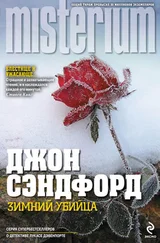

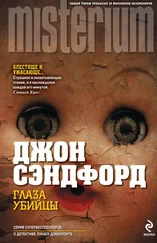
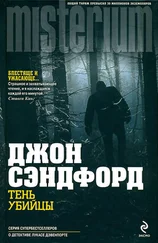
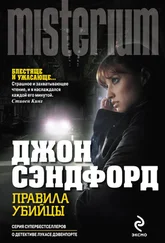
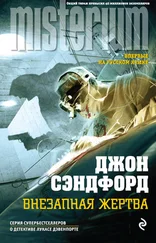
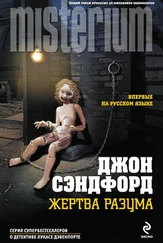
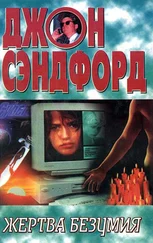

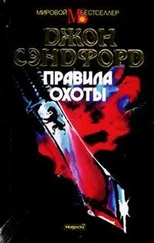
![Джон Ирвинг - Viename asmenyje [calibre]](/books/384315/dzhon-irving-viename-asmenyje-calibre-thumb.webp)
![Джон Ирвинг - Vandens metodas [calibre]](/books/384316/dzhon-irving-vandens-metodas-calibre-thumb.webp)